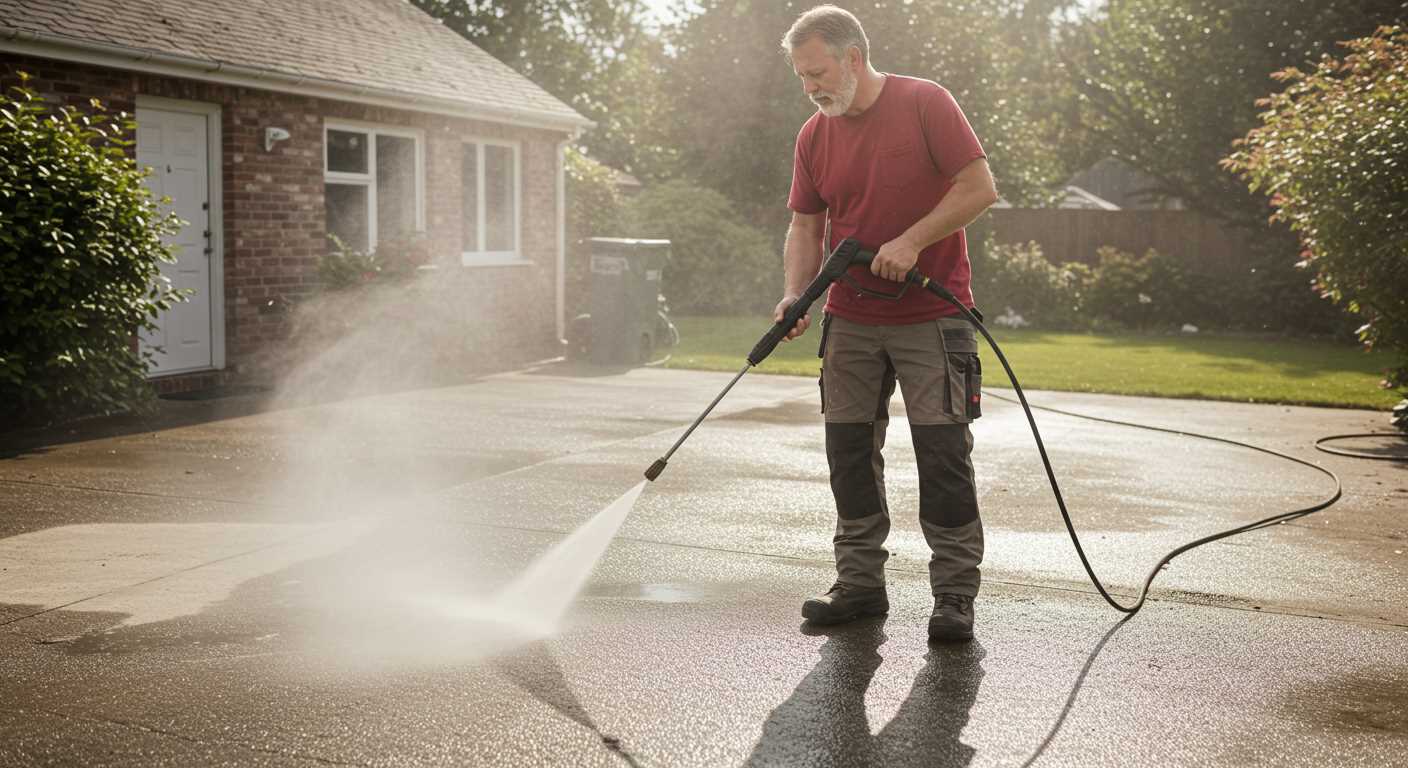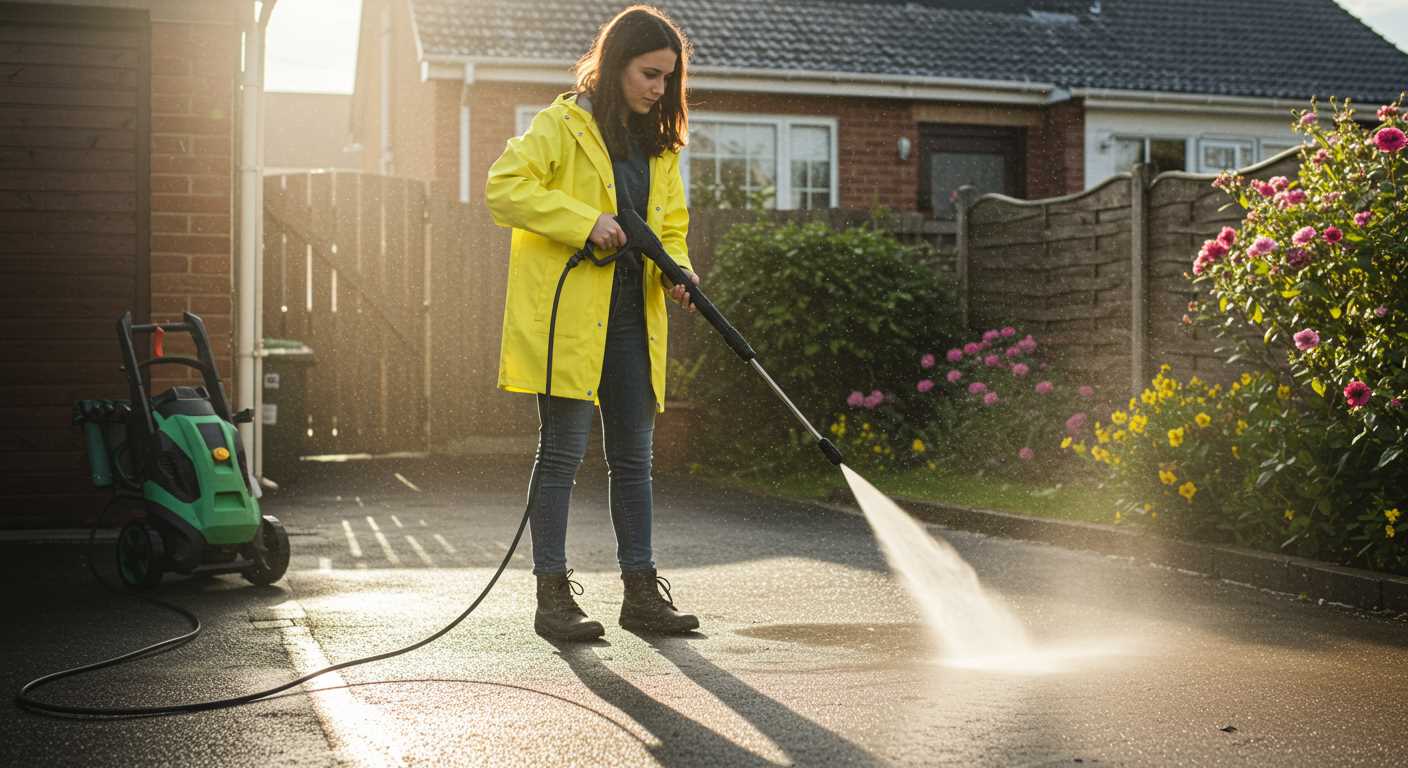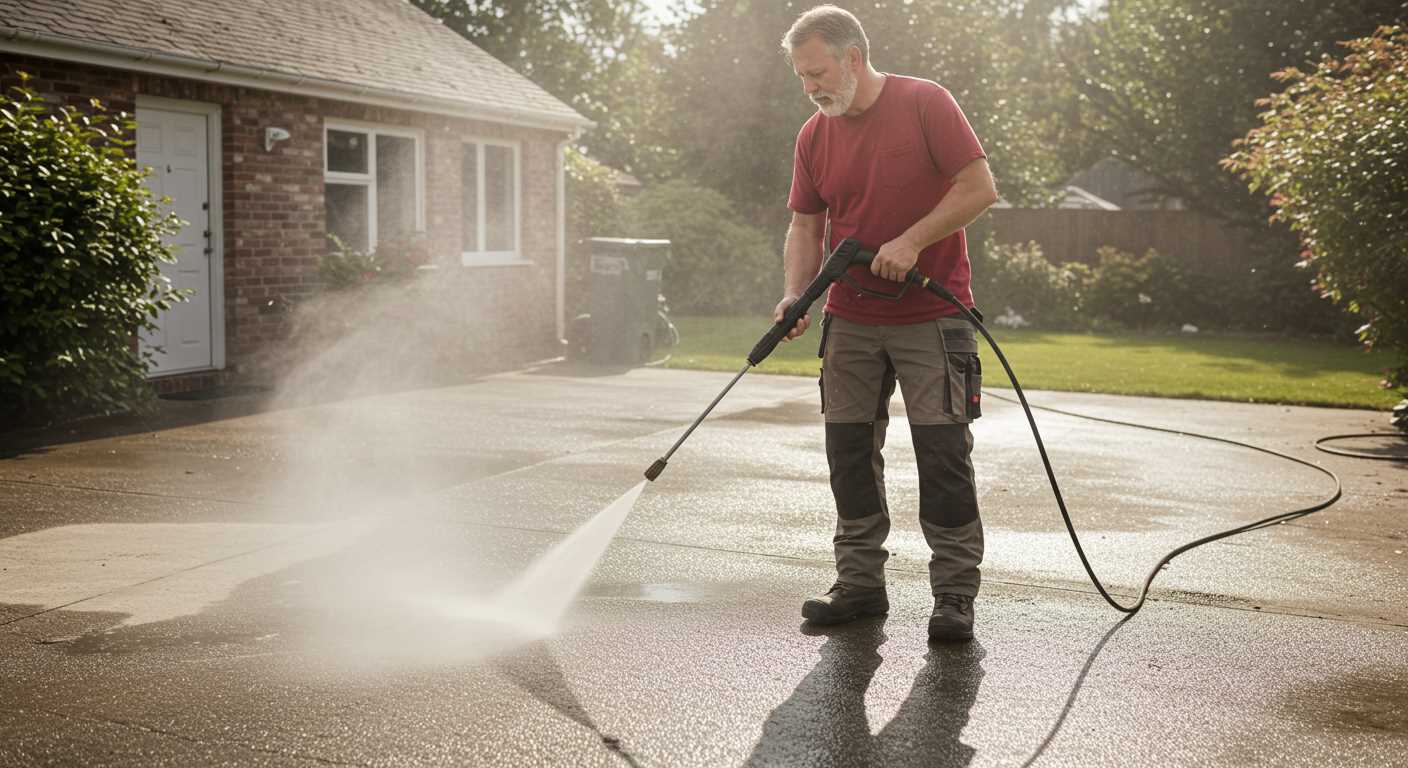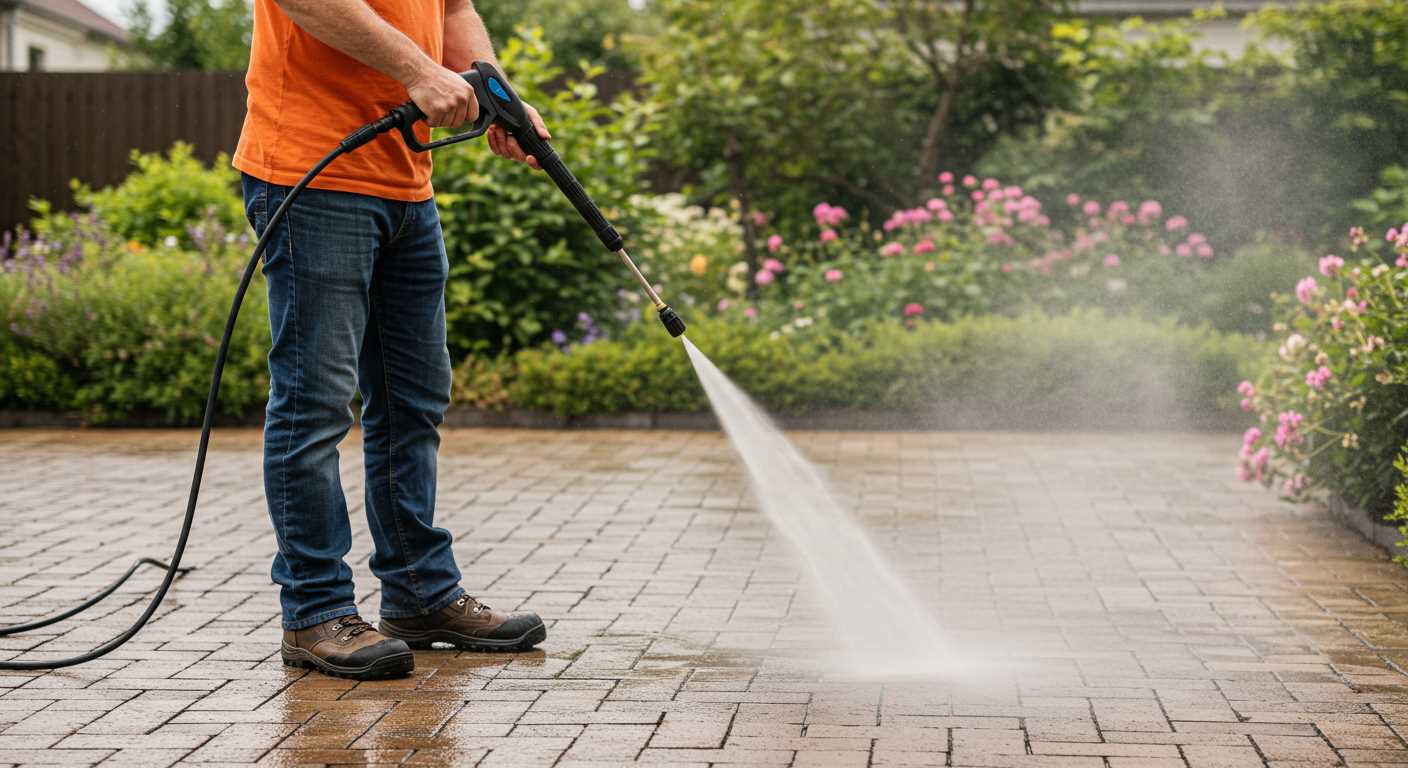




Prioritising compliance with local regulations is vital when it comes to outdoor cleaning activities. Engaging in high-pressure cleaning during a water usage restriction is generally not advisable. These regulations are introduced to conserve water resources, especially during dry spells. Ignoring such guidelines could lead to fines or other penalties.
From my years in the cleaning equipment industry, I’ve encountered numerous customers grappling with this dilemma. One memorable case involved a homeowner who had planned a major exterior cleaning project only to be informed of an impending restriction. They were frustrated but ultimately decided to postpone the task, recognising the importance of adhering to community guidelines.
There are alternatives to consider that comply with water conservation efforts. For instance, utilising a bucket and sponge for smaller jobs can be a practical solution. This method allows for careful control of water usage while still achieving satisfactory results. Additionally, if the need arises for deeper cleaning, consider waiting until the restriction is lifted or exploring eco-friendly cleaning solutions that require less water.
In my experience, patience often proves to be the best approach. Waiting for the right time not only ensures compliance with regulations but also promotes responsible water usage. Water is a precious resource, and respecting guidelines benefits the entire community.
Understanding hosepipe bans and their regulations
Hosepipe restrictions typically arise during periods of drought or significant water shortages. Local authorities enforce these regulations to conserve water resources, making it illegal to operate garden hoses for activities such as watering gardens, washing cars, or filling pools. It’s crucial to check specific guidelines provided by your local water supplier, as these can vary significantly by region.
During a ban, exceptions may apply. For example, using water for health and safety reasons, such as cleaning medical equipment or addressing urgent maintenance issues, often remains permissible. However, these exceptions generally do not extend to leisure activities or non-essential tasks.
Fines can be imposed for violations of these regulations. Enforcement measures vary but can include on-the-spot penalties or further legal actions. It’s advisable to stay informed about the local regulations and any updates, especially if the ban is lifted or altered.
Watering restrictions may also include specific days or hours when such activities are allowed, particularly in more flexible cases. In some instances, using water-saving devices or methods might be encouraged to maintain a green space while adhering to guidelines.
For those looking to maintain their outdoor areas without breaching regulations, consider alternative methods. Rainwater collection systems or using mulch to retain soil moisture can be beneficial. These approaches not only comply with restrictions but also promote sustainability.
What is a pressure washer and how does it work?
High-pressure cleaning equipment employs a motor to pump water through a narrow nozzle, generating a focused jet that can effectively remove dirt, grime, and stains. The motor can be electric or powered by petrol, with each type offering different advantages depending on the task at hand. Electric models are typically quieter and more suitable for light to medium cleaning jobs, while petrol-driven units provide greater power for heavier tasks, such as cleaning driveways or preparing surfaces for painting.
The heart of this equipment lies in its pump, which elevates the water pressure to levels that standard garden hoses cannot achieve. Most units operate at pressures ranging from 1000 to 4000 PSI (pounds per square inch), allowing for a powerful stream that can tackle even the toughest debris. The nozzle plays a crucial role, as different sizes and types can alter the spray pattern, allowing for versatility in cleaning applications. For instance, a wider spray is ideal for gentle cleaning of delicate surfaces, while a narrow jet can focus force on stubborn stains.
When I first started using this type of cleaning device, I was amazed by its ability to strip away years of built-up grime from patio stones with minimal effort. The satisfaction of watching dirt vanish under the intense spray was both exhilarating and rewarding. Over time, I learned the importance of technique; using the right angle and distance is paramount to avoid damaging surfaces. For example, too close of a distance on wood decking can lead to splintering, while a gentle approach on painted surfaces helps preserve their finish.
Most modern units come with various attachments and accessories, including brushes and detergent tanks, further enhancing their cleaning capabilities. I remember experimenting with different detergents to see which worked best on oil stains from my driveway. The right solution, combined with the high-pressure stream, turned what was a daunting task into a manageable chore.
In summary, this cleaning technology offers a powerful solution for a range of tasks, from simple home maintenance to professional cleaning services, making it an invaluable tool in any cleaning arsenal. Understanding its components and operation can help maximise its benefits and ensure longevity, as regular maintenance of the pump and motor is key to preserving performance over time.
Water usage comparison: pressure washers vs traditional hoses
In my years of working with cleaning equipment, I’ve seen firsthand how many people underestimate the impact of their choice of cleaning tools on water consumption. High-efficiency devices significantly reduce the amount of water needed compared to conventional garden hoses. For instance, a typical garden hose can use up to 15 litres of water per minute, while a high-pressure unit can operate using only 5 to 10 litres per minute to achieve similar results.
Effectiveness in cleaning
When tackling dirt and grime, the high-pressure method not only consumes less water but also requires less time. I remember a project where I had to clean a large patio. Using a standard hose took hours, and I ended up using hundreds of litres. Switching to a high-efficiency model cut my cleaning time in half and drastically reduced the water usage. This is particularly relevant in drought-prone areas where every litre counts.
Additional benefits
Another aspect to consider is the ability of high-pressure units to clean without the need for harsh chemicals. This not only conserves water but also helps in protecting the environment. My experience has shown that a well-directed jet can remove stubborn stains and dirt more effectively, leading to less water wasted on repeated rinsing. Choosing the right equipment can make a significant difference both in terms of water conservation and cleaning efficiency.
Local laws regarding high-powered cleaning devices during a water usage restriction
Each local authority establishes its own guidelines concerning the operation of high-powered cleaning devices amidst a water usage restriction. It’s crucial to verify specific regulations in your area before proceeding with any cleaning tasks.
- Check local council regulations: Most councils publish their restrictions on official websites. This includes details on permitted and prohibited activities related to water usage.
- Understand exemptions: Some jurisdictions allow the use of high-velocity cleaning tools for specific purposes, such as cleaning vehicles or maintaining public spaces. Always confirm the criteria for these exemptions.
- Consult neighbours: Engaging with your community can provide insights into local practices and any unspoken guidelines regarding the use of cleaning equipment.
- Penalties for non-compliance: Be aware that violating local regulations can lead to fines. It’s advisable to stay informed to avoid potential repercussions.
In my experience, I’ve observed a mix of leniency and strictness among various councils. Some areas are more understanding, particularly if the cleaning is essential for health or safety. However, it’s always prudent to err on the side of caution.
Additionally, keeping a record of your usage can be helpful. Should questions arise regarding your activities, having documentation can assist in clarifying your compliance with local laws.
Using a pressure washer responsibly during restrictions
When faced with limitations on water use, I recommend adopting a strategic approach to maintenance tasks. Prioritising jobs that truly require a high-powered clean can help conserve water while still achieving outstanding results. For instance, focus on cleaning driveways or patios where dirt and grime can accumulate significantly. These areas often benefit from the concentrated force that only high-pressure equipment can provide.
Another consideration is the timing of your cleaning sessions. Early mornings or late afternoons tend to be cooler, reducing evaporation rates. This ensures more water reaches the surface you’re cleaning, maximising efficiency. Always keep an eye on weather forecasts; choose days with anticipated rain to take advantage of natural moisture, which can enhance cleaning effectiveness.
Maximising water efficiency
Utilising accessories can also enhance water conservation. Nozzles that adjust the spray pattern allow for precise targeting, minimising waste. I often find that switching to a narrower spray can maintain pressure while using less water. Furthermore, employing a surface cleaner attachment can drastically cut down cleaning time and water usage, making the entire process more efficient.
Alternative methods for tough stains
For stubborn stains, consider pre-treating surfaces with eco-friendly cleaning solutions. This method can reduce the amount of water needed during the actual cleaning phase. In my experience, allowing these solutions to sit briefly before rinsing can significantly enhance their effectiveness, requiring less water to achieve a clean finish.
Alternative cleaning methods during a hosepipe ban
Consider using a bucket and sponge for smaller jobs. This method conserves water while allowing for targeted cleaning. Fill a bucket with soapy water, and use a sponge or cloth to scrub surfaces thoroughly. Rinsing can be done with a minimal amount of water, which is often more sustainable during restrictions.
Utilising a broom or brush
For outdoor areas like patios and driveways, a stiff broom or brush works wonders. Sweeping away debris and dirt reduces the need for excessive water use. On occasions where stubborn stains are present, a mixture of vinegar and baking soda can lift grime without the need for high water volumes.
Investing in a water-efficient cleaning tool
Consider a water-efficient cleaning device designed for minimal usage. Some models require only a small amount of liquid to achieve a thorough clean. These options can be particularly useful for car cleaning or outdoor furniture. Always check the manufacturer’s specifications to ensure compliance with local regulations.
Recycling water from rainwater collection systems can also be a practical solution. Using this collected water for cleaning purposes not only adheres to restrictions but also promotes eco-friendliness. Setting up a simple rain barrel can make a significant difference.
In scenarios where higher pressure is necessary, look into steam cleaning equipment. This method sanitises surfaces without relying heavily on water, making it an excellent alternative during dry spells.
Potential consequences of using a pressure washer in violation

Disregarding regulations surrounding water usage can lead to significant repercussions. Fines can reach substantial amounts, depending on local laws. In some regions, penalties may escalate with repeated offences, causing financial strain. Additionally, using high-powered cleaning devices during restrictions may contribute to water shortages, impacting local communities and ecosystems.
Environmental damage is another serious concern. Excessive water consumption can result in reduced water levels in rivers and lakes, threatening aquatic life. It’s crucial to consider the broader impact of individual actions on the environment.
Reputational harm can also arise from flouting guidelines. Neighbours and local communities may view rule-breakers unfavourably, leading to strained relationships and a loss of trust. Being a responsible member of the community is paramount, especially in times of scarcity.
For those relying on cleaning equipment, exploring alternatives is wise. Techniques such as using a pressure washer nozzle for garden hose can provide effective cleaning without violating restrictions. This approach ensures compliance while still achieving desired cleanliness.
Ultimately, the consequences of ignoring water restrictions can extend beyond immediate fines. The long-term impacts on the environment and community relationships can be profound, making it essential to act responsibly and sustainably.
Tips for Reducing Water Usage with a High-Pressure Cleaner
To maximise cleaning efficiency while minimising water consumption, consider these strategies:
1. Choose the Right Nozzle: Opt for a nozzle that delivers a focused jet rather than a wide spray. A narrow stream uses less water while effectively removing dirt and grime. I’ve found that a 15-degree nozzle often strikes the perfect balance between power and water conservation.
2. Adjust the Pressure Settings: Many models allow for pressure adjustments. Lowering the pressure to suit the specific task can significantly reduce water usage without sacrificing cleaning power. For instance, when tackling patio furniture, I often drop the pressure to around 1000 PSI, which is more than sufficient.
3. Use a Cleaning Solution Wisely: Incorporate a biodegradable cleaning solution that can be applied before rinsing. This method allows for quicker cleaning and less water needed for rinsing. I remember treating my driveway with a detergent, letting it sit and then using a minimal amount of water to rinse it away effectively.
4. Work Smart: Pre-soak surfaces before pressure washing. This means that dirt is loosened prior to cleaning, allowing for quicker results. This approach has saved me a considerable amount of water, especially on heavily soiled areas.
5. Plan Your Cleaning Sessions: Tackle multiple surfaces in one go to avoid repeated setup and teardown, which can waste water. I often plan my tasks for a Saturday morning, cleaning the car, patio, and driveway in a single session to optimise both time and water.
6. Use a Water Recycling System: Some high-pressure devices come with a water recovery feature that collects and filters used water for reuse. I installed a model with this capability, which has drastically cut down my overall consumption.
7. Limit Time Spent Cleaning: Set a timer for each task. It’s easy to lose track of time when cleaning, leading to excessive water use. I usually allocate 30 minutes for each outdoor session and stick to it.
| Method | Water Usage (litres) | Notes |
|---|---|---|
| Traditional Hose | 20-30 | General cleaning without nozzle adjustments. |
| High-Pressure Unit (Standard) | 5-10 | With proper nozzle and pressure settings. |
| High-Pressure with Water Recovery | 2-5 | Reuses water, significantly reducing waste. |
Implementing these practices has proven to be beneficial for both the environment and my water bill. Every bit counts when it comes to conserving this precious resource. Happy cleaning!
When to Check for Updates on Hosepipe Bans
Stay informed by regularly checking local council websites and environmental agency announcements. These sources provide the latest information on restrictions in your area, helping you avoid unnecessary penalties.
Here are key moments to monitor for updates:
- Before planning any outdoor cleaning tasks or gardening activities, verify current regulations.
- During periods of drought or unusually dry weather, check frequently as bans can be implemented rapidly.
- After significant rainfall events, assess if restrictions have been lifted or modified.
In addition, consider setting up alerts on relevant websites or social media channels to receive notifications directly. Keeping abreast of these updates ensures compliance and promotes responsible water usage.
For those looking to document their cleaning adventures or keep a record of home maintenance, think about investing in a digital camera or digicam. Capturing before and after photos can provide valuable insights and help track the effectiveness of your methods.






.jpg)


